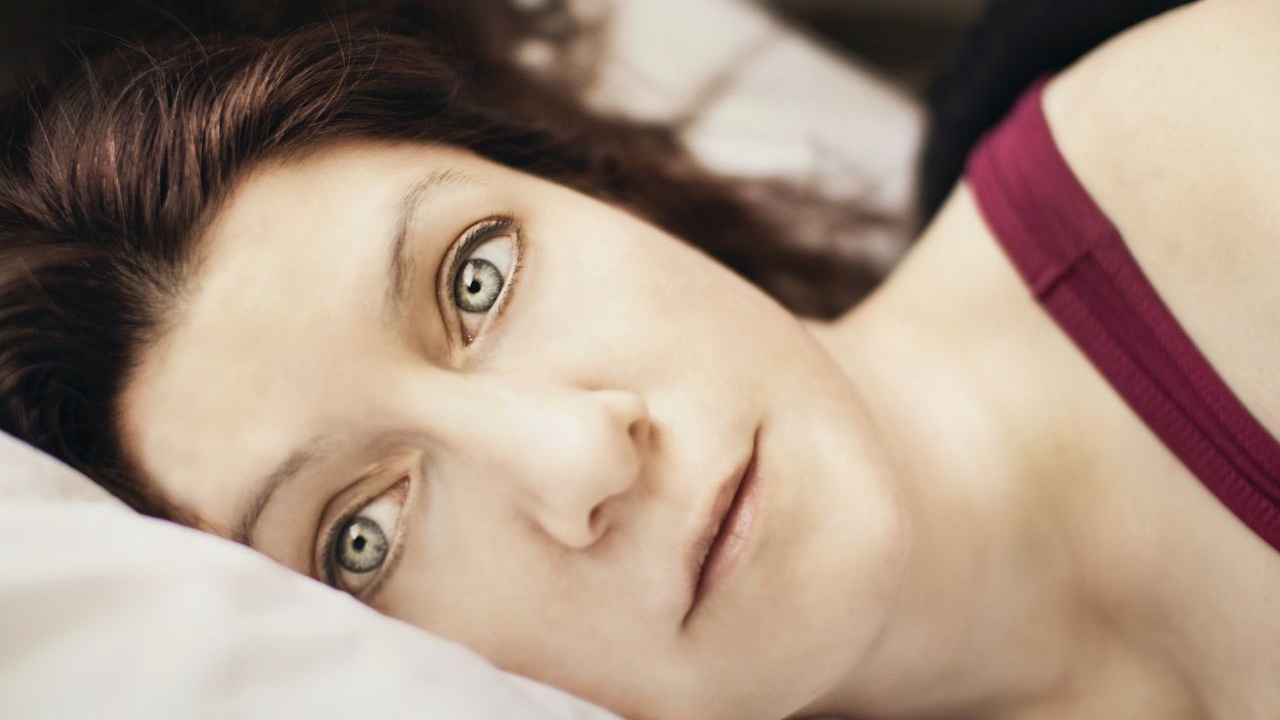6 Tips for Better Sleep During Menopause

According to WebMD, sleep problems affect 61% of menopausal women. Learn how to navigate menopausal challenges with these 6 tips for higher-quality, more restful sleep.
Menopause symptoms feel a lot like an Easter egg or a box of chocolates from Forrest Gump: you never know what you’re gonna get. One day it may be hot flashes that are throwing you off track and other days, the tears won’t stop (and you’re not even a crier).
What gives?
The myriad of changes we experience during this important biological transition can be overwhelming, especially when you consider the effects of menopause on your sleep. In fact, approximately 61% of menopausal women have sleep problems. When you consider the role sleep plays in virtually every other aspect of health – including our growth and stress hormones, immune systems, appetite, cardiovascular health, and so much more – getting the quality rest we need is one thing we shouldn’t sleep on (pun intended).
While navigating the intricacies of menopause and your changing body might feel overwhelming and stressful – and you may mourn your newfound inability to rock your favorite dance move that impressed everyone in your younger, wilder days – there are actionable steps you can take to not only get the zzz’s you need, but to ensure the quality of sleep is adequate for the many other systems that rely on rest to function optimally.
So if you’re tired of being tired, try one or more of these 6 steps to keep you feeling (and looking) your best.
6 Tips for Better Sleep During Menopause
- Stabilize your blood sugar levels. Don’t chalk up poor sleep quality to fluctuating hormones alone. Just as poor sleep impacts blood sugar, blood sugar also impacts sleep. One study found that those with higher blood sugar levels had poorer sleep.
You can avoid blood sugar spikes by:
- Consuming your largest meal in the morning, gradually downsizing throughout the day
- Taking a 20-40-minute walk after meals (Kill two birds with one stone: Studies show> that walking outdoors also does wonders for mental health!)
- Include protein with each meal and consume protein and fat before carbohydrates
- Consider a magnesium supplement which not only can blunt blood sugar spikes, but can improve sleep quality
- Reduce your sugar intake
- Lower the temperature in your bedroom. Your body temperature decreases when you sleep. For the most comfortable sleep, experts suggest keeping the temp between 60-65 degrees Fahrenheit, with 65 being the sweet spot for most people.
- Take a warm shower or bath 1-2 hours before bed. Most people think that taking a warm bath before bed helps because it warms the body in preparation for jumping into a cozy, toasty bed, right? Wrong. The opposite is true, actually. Because our bodies gradually cool to what becomes our lowest temperature a couple of hours after we turn the lights off, taking a warm shower or bath actually brings the heat within your body to the surface, easing your brain and body into sleep. One study showed that patients who used a sleep medication fell asleep only mere minutes faster than the group who took a warm bath – and spoiler: the warm bath doesn’t carry the risk of dependency or pesky side effects, like next-day brain fog.
- Opt for bamboo bedding and pajamas over other materials. If you wake up sweating in the middle of the night, bamboo bedding and pajamas will be your slumber saviors. Bamboo is wildly beneficial because it prevents you from overheating (which as we know, is quite the nuisance in menopause). Because bamboo fabric is incredibly durable, your sheets and PJs will last you years, unlike its cheap cotton counterparts.
- Sleep on an Eight Sleep cooling mattress pad: When all else fails, it might be time to enhance your sleep space with the latest in cooling technology. Eight Sleep helps you fall asleep faster, improve muscle recovery, increase deep and REM sleep, and make sure you wake up fully rested, ready to face whatever the day has in store. It even works for two sleepers and fits any mattress height. Use code MORGAN for $150 off.
There you have it. While it may feel overwhelming to try to tackle all 6, start by adding just one to your daily routine. After all, Bruce Lee once said: Long-term consistency trumps short-term intensity.
Don’t Skimp on Sleep
Restful sleep is the cornerstone of whole-body health. When our sleep suffers, so does everything (and everyone) else. Adding to poor sleep the challenges and cumbersome symptoms menopause brings, it can start to feel very hopeless and isolating. But there is hope and a path forward, and it is not one you need to walk alone. Many women are experiencing the same struggles you face today, but you don’t have to live with them forever.
If you are ready to create your own sleep sanctuary and overcome the “sleep stealers” that are keeping you from feeling your best, contact me today for a free discovery call. And if you want to fall asleep faster, stay asleep longer, and feel more rested when you wake up, download my free Better Bedroom Checklist!
Disclaimer: This post contains affiliate links which means I earn a small commission if you choose to purchase any products mentioned here (all of which I have heavily vetted, use, and love). You do not pay a higher price for shopping my links.
